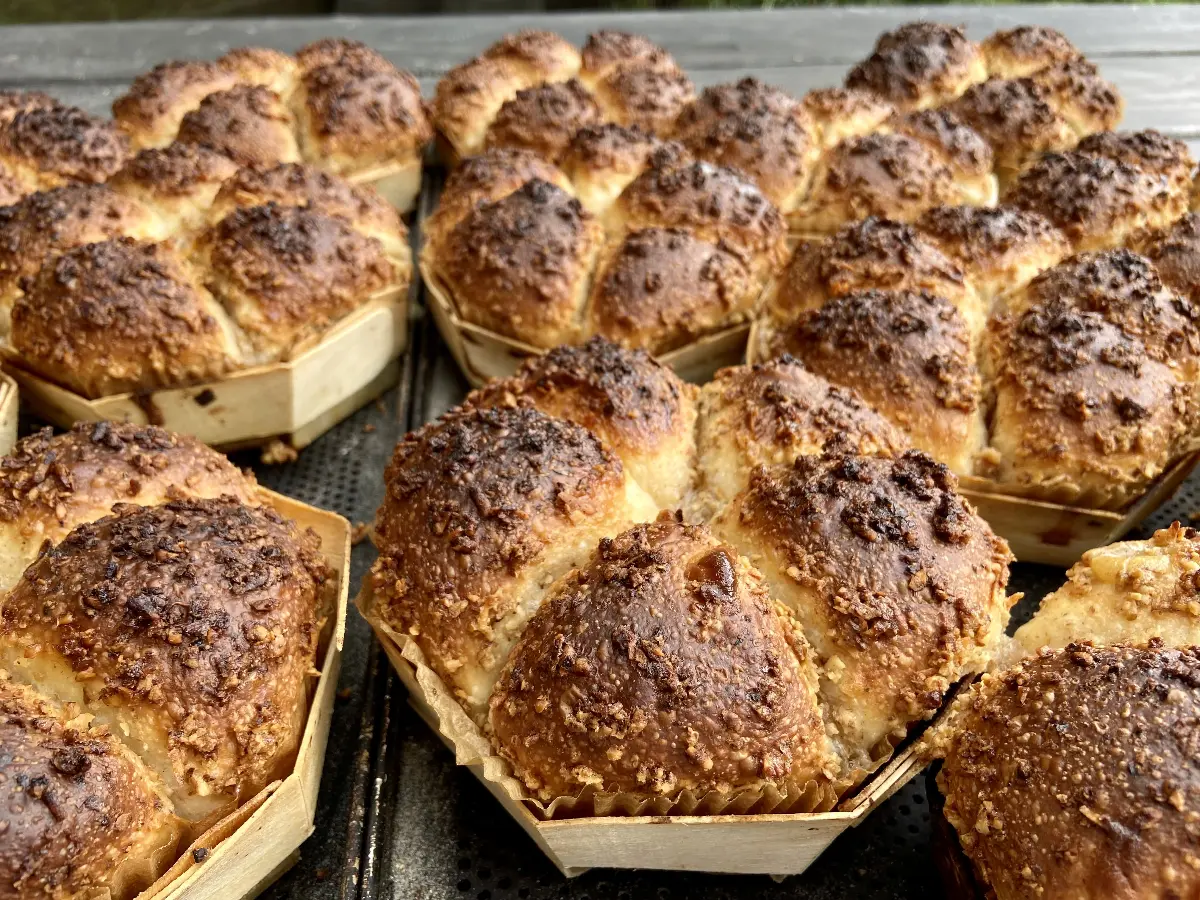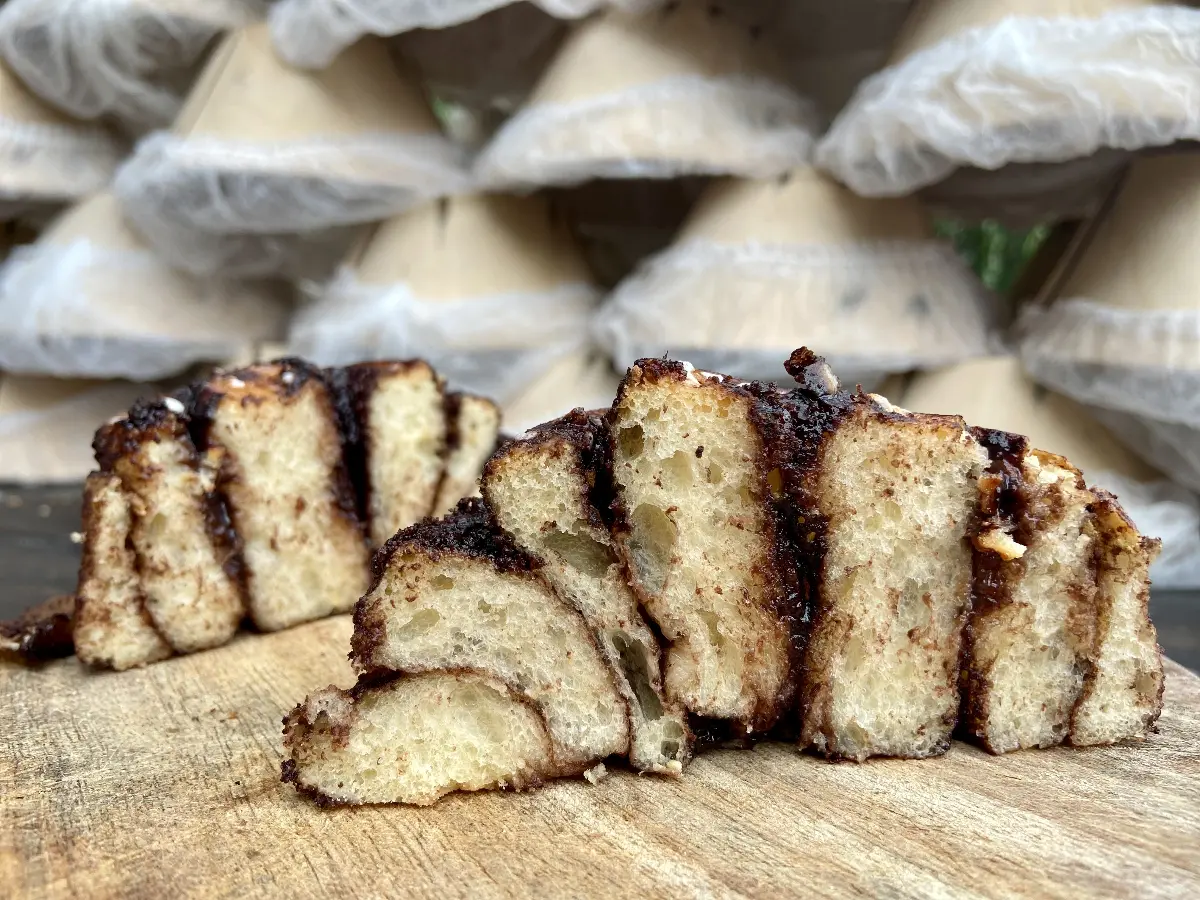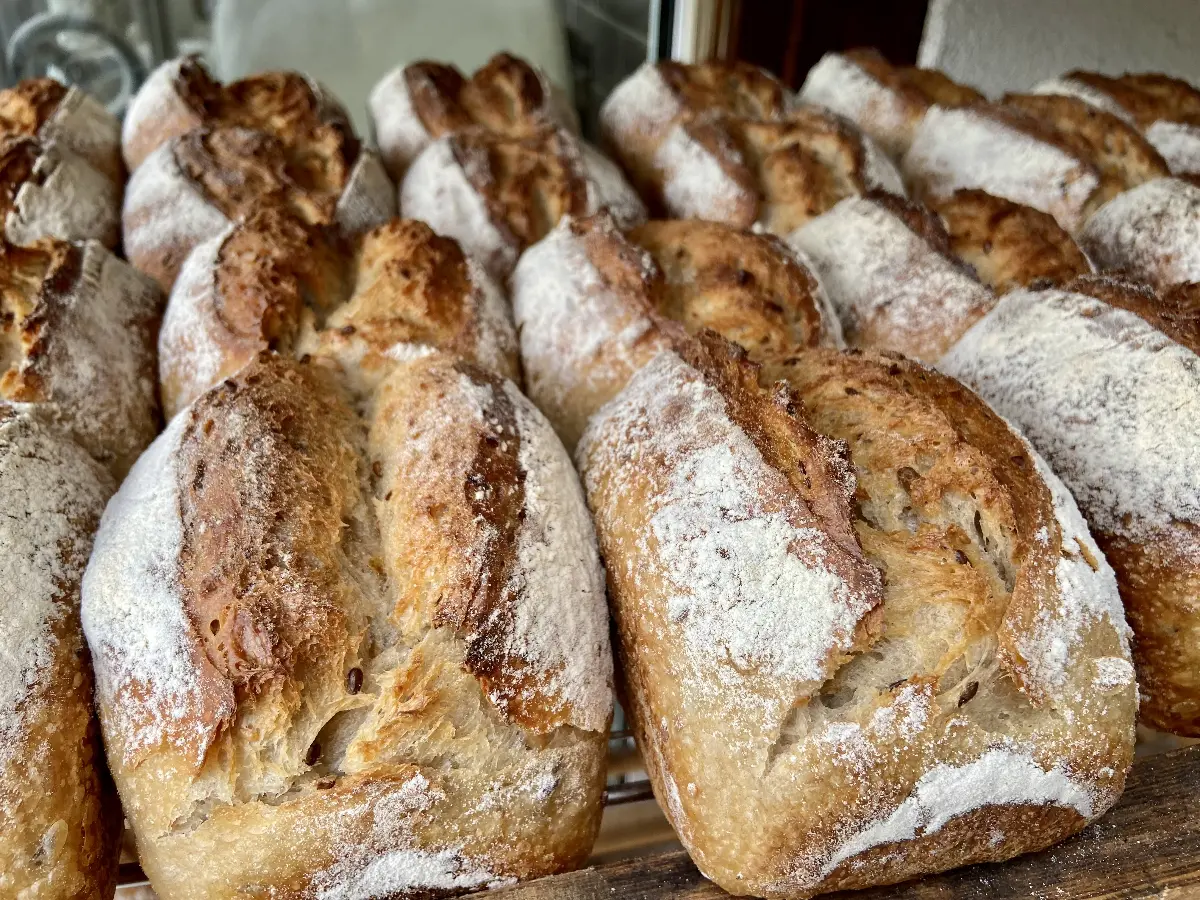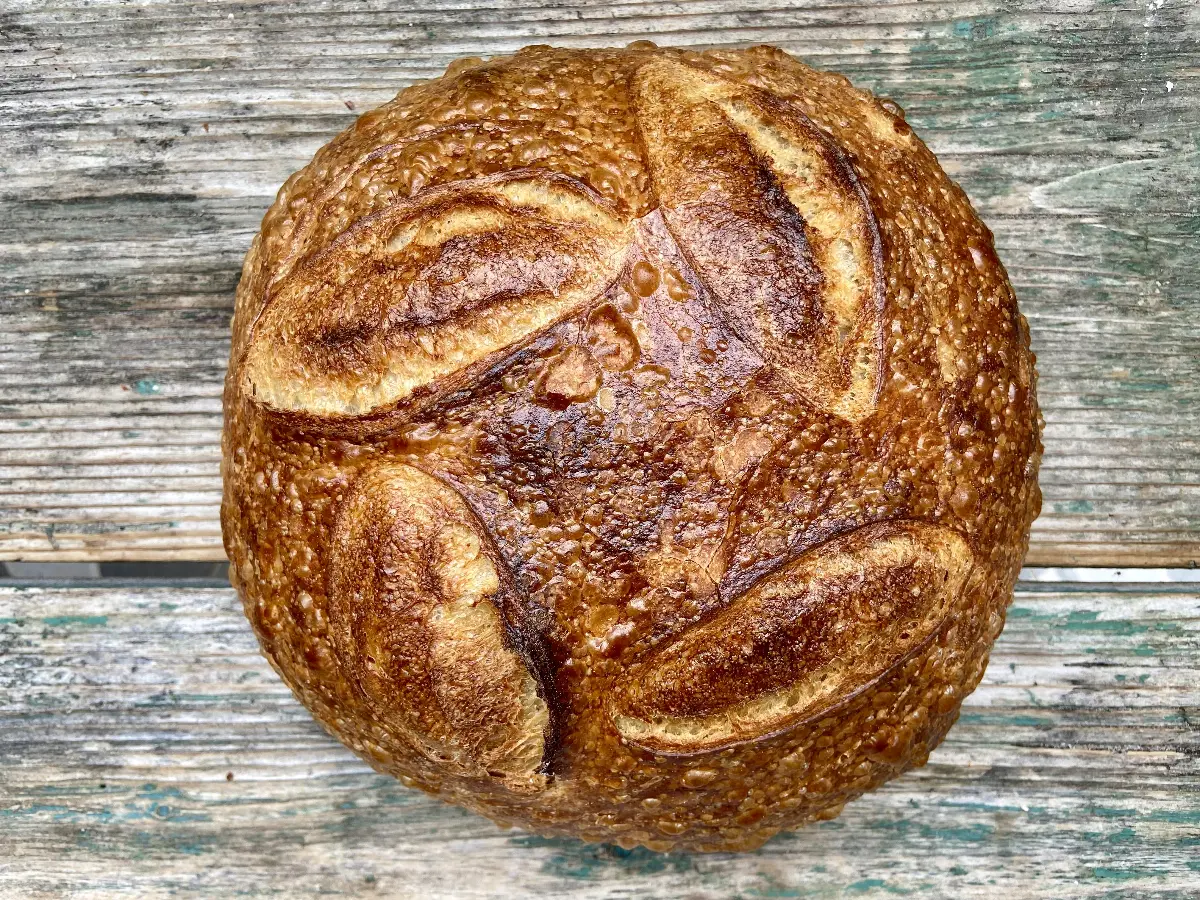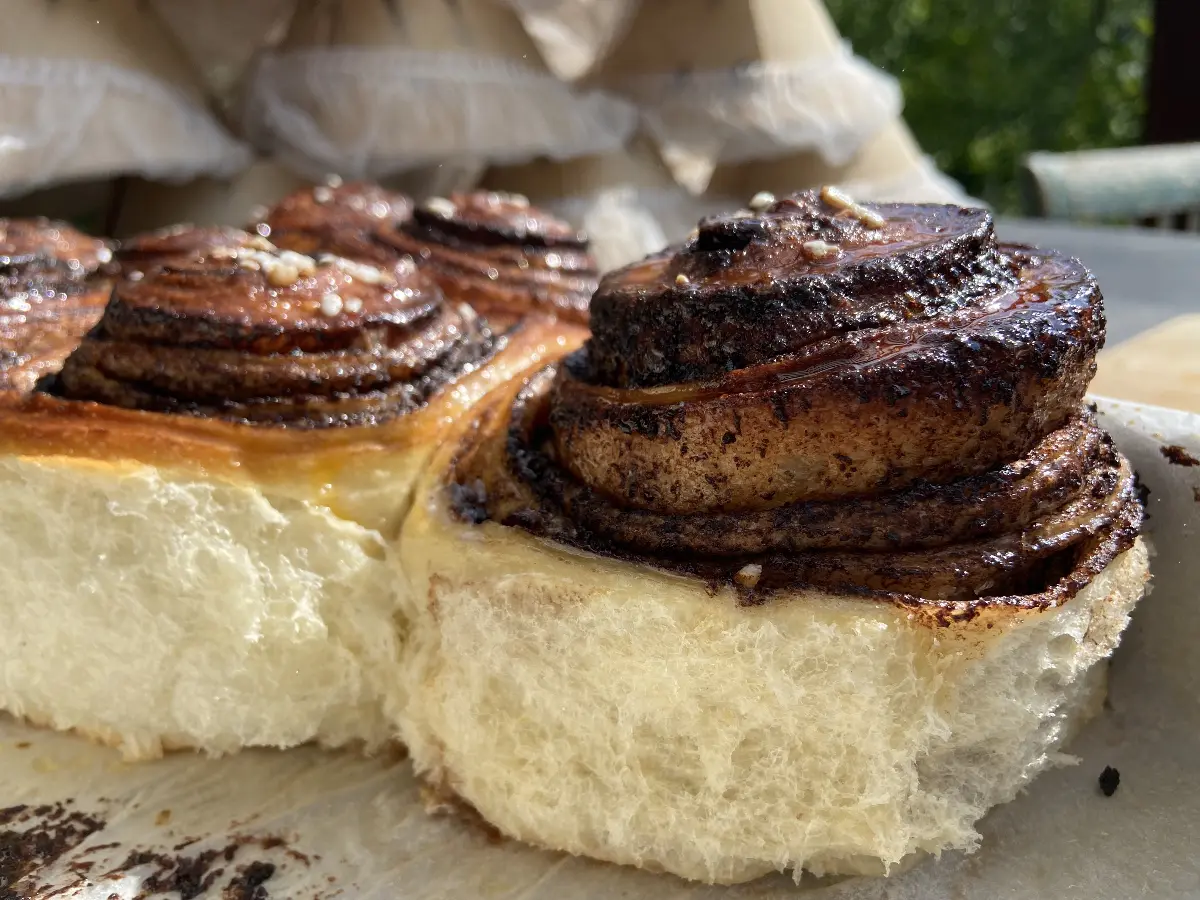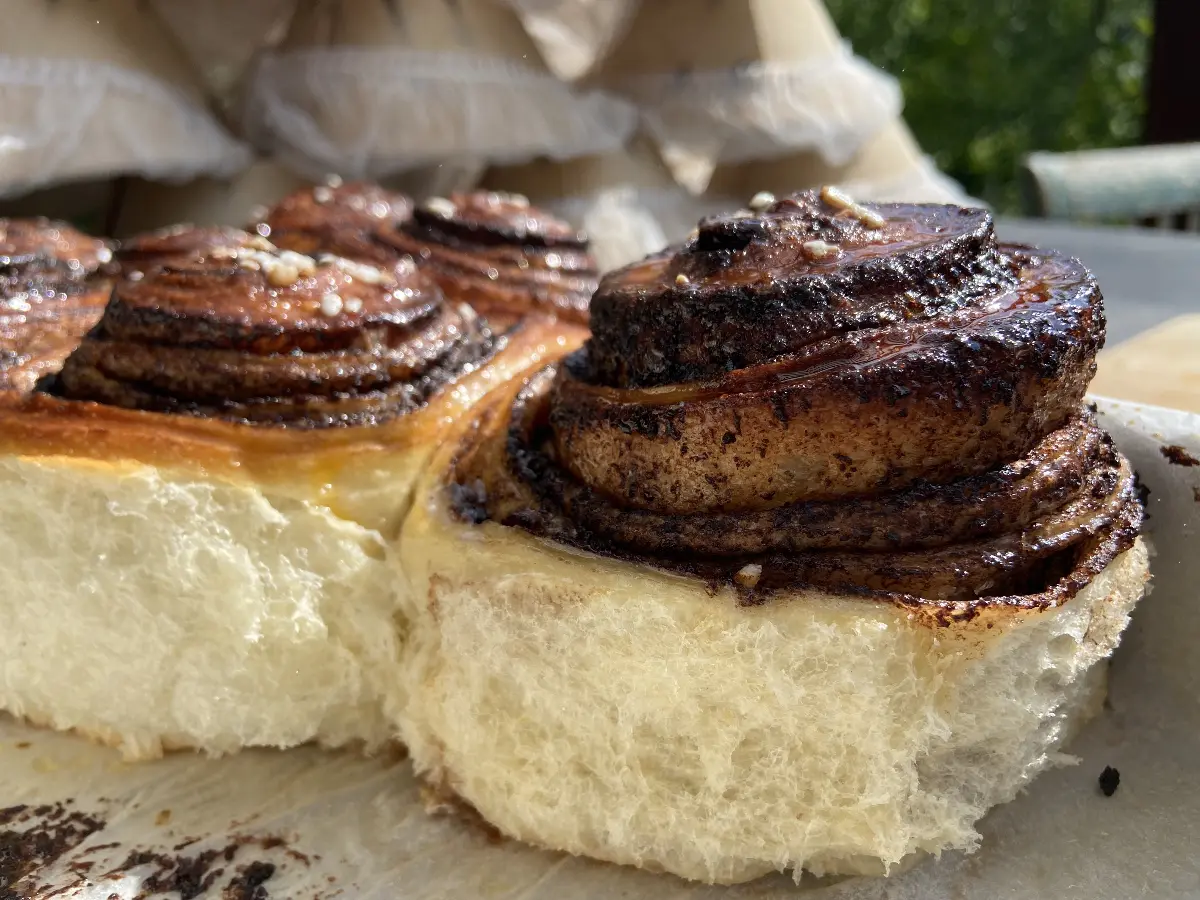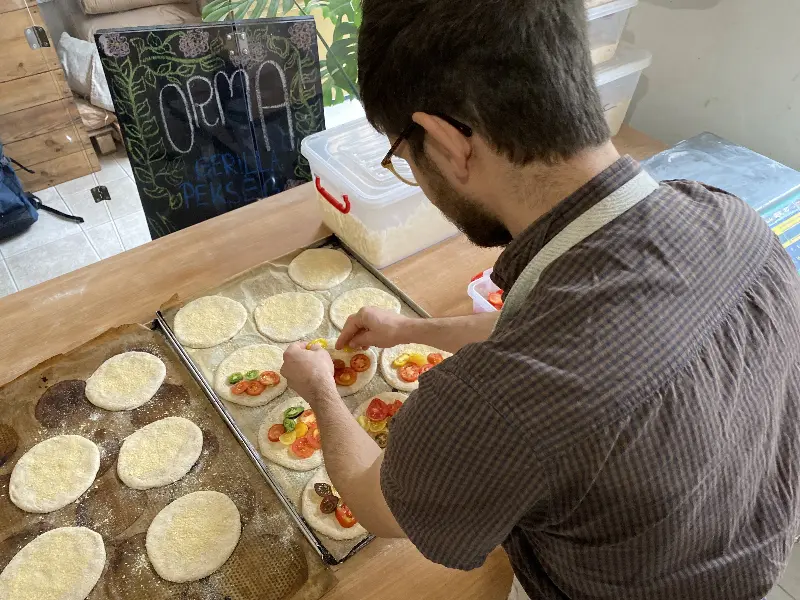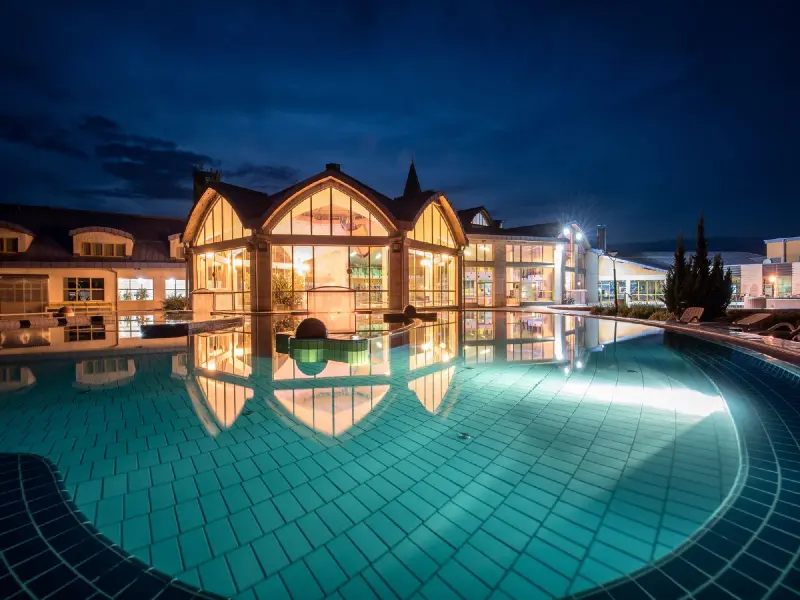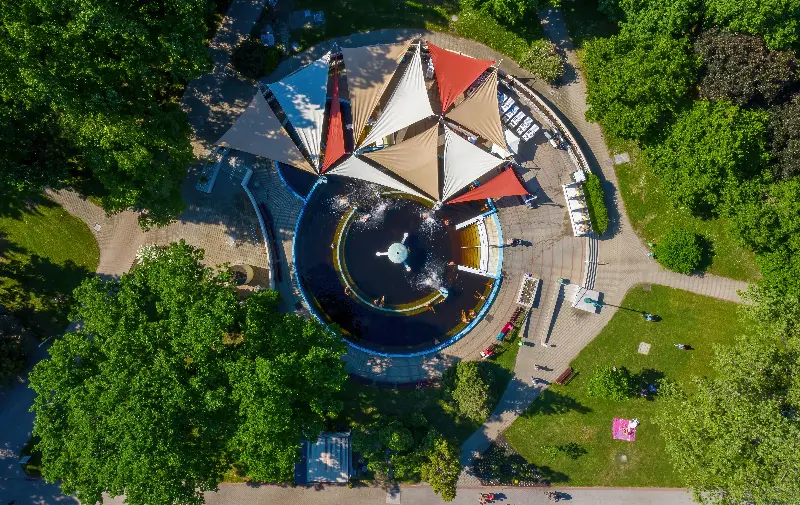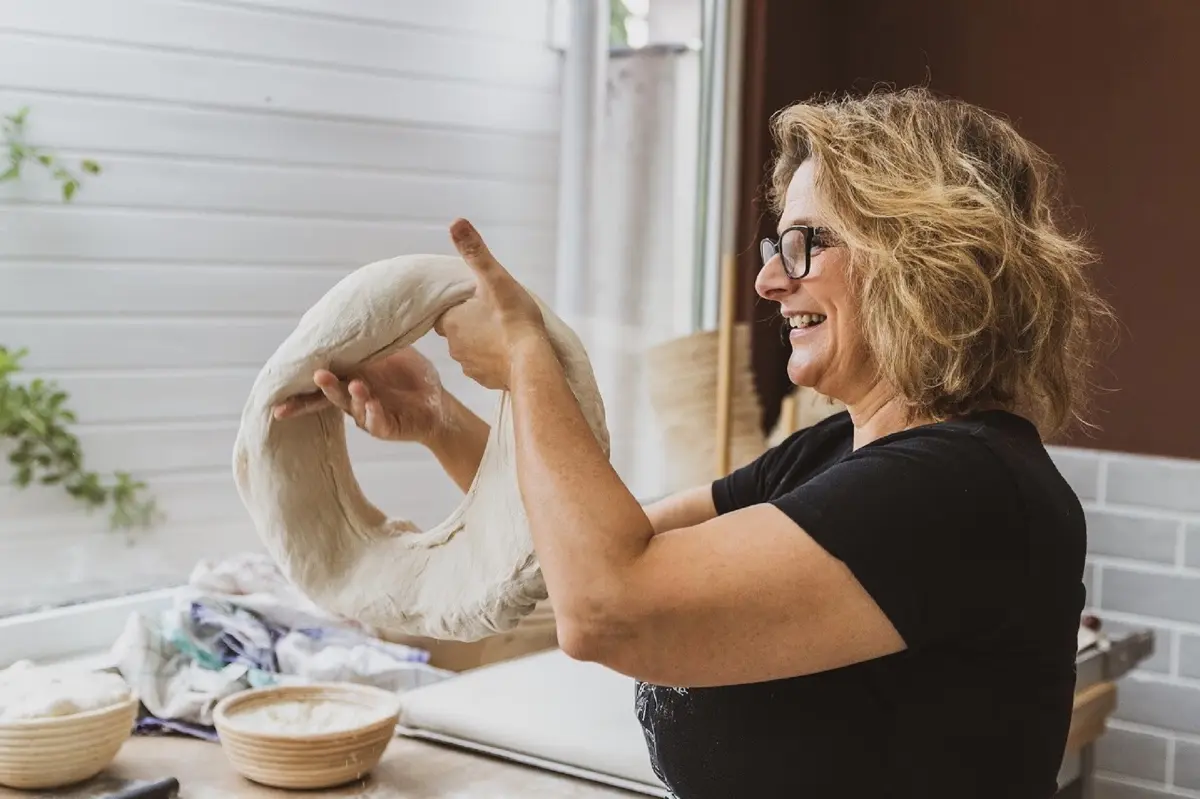
Helyszín címkék:
Domestic traditions and foreign examples at the Academy of Sourdoughs in Budajenő
Méhész Zsuzsa
The bakery that is, in fact, not a bakery
Gabriella Ormós is the creator and owner of the Jenői Bakery in Budajenő. But we search in vain for the company logo: In a quiet part of Budajenő, only the cars parked in front of the gate indicate where to get the best bread and pastries in the area. For now, it is mainly the people of Budajenő who will benefit from it, but there are some plans that are perhaps too early to talk about. By now, the Jenői Bakery has become a concept, although it started as a witty joke: one of the colleagues of the lady who occasionally supplied her workplace with delicacies stuck the name on the kitchen of the family house in Budajenő, which was not even a home bakery at the time. Gabriella, who at the time was still an experimenter and looking for her own way in the business, sometimes appeared at her communications company’s regular breakfasts with her own loaves of bread. Speaking of a communications specialist, a Facebook page was also created, and the good breads quickly became famous, with more and more people looking for the location of the bakery. Initially, only the privileged were allowed to taste the experimental results, which were always linked by two things: a commitment to quality and sourdough.
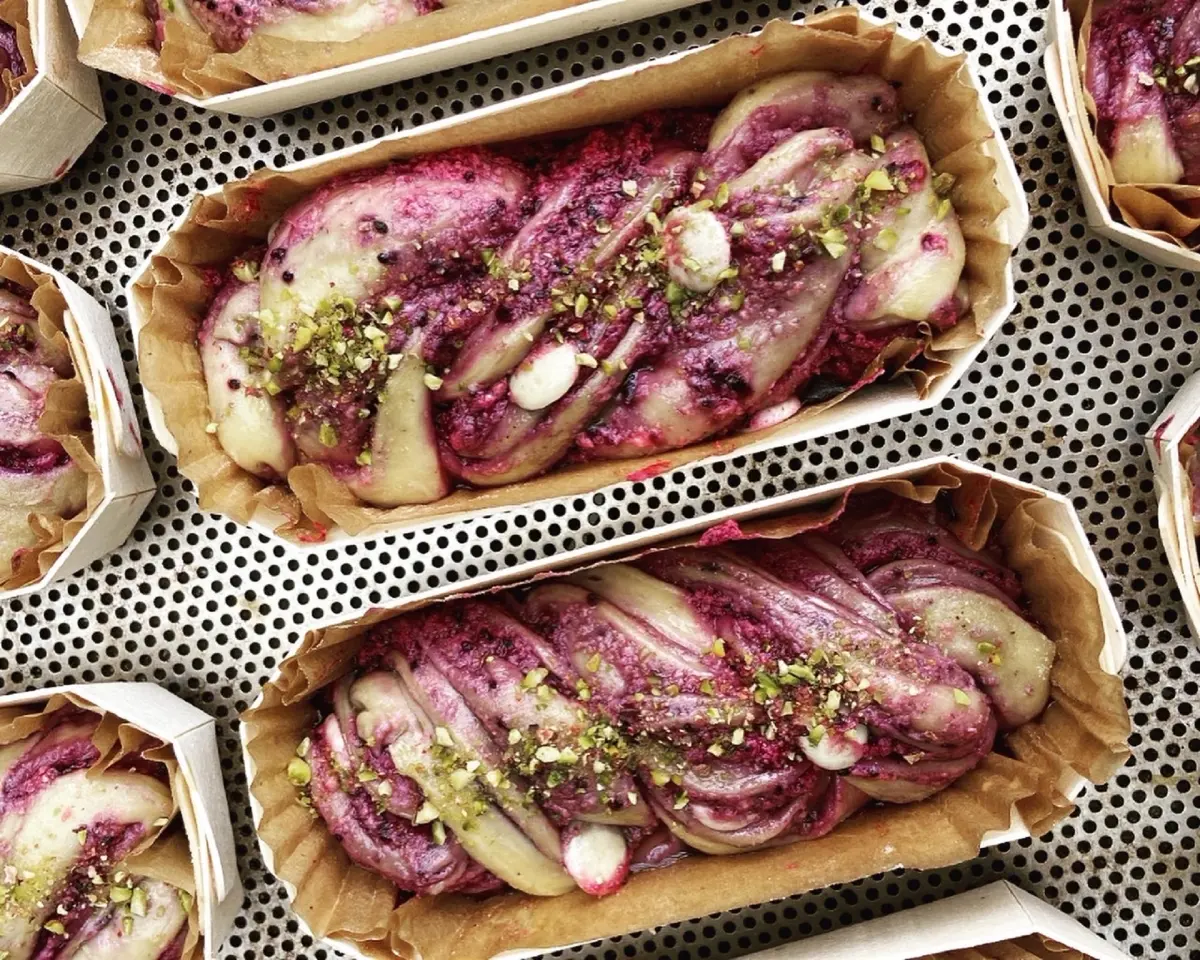
Domestic traditions and foreign examples
It all started with pleasure – long before the coronavirus turned all sane people into hobby bakers. Gabriella has discovered for herself the slow process of traditional sourdough baking, which requires great attention and a special sense. As a well-travelled and curious woman, she quickly discovered that famous bakers abroad were already teaching what was just beginning to happen at home. There have already been sourdough bakeries, but few have been able to say why the breads made there are better. She has attended workshops in several countries, Sweden, England and even Singapore, where she learned a lot – only to return home to find that not only do we need more customer awareness, but also professional awareness. This is because even professional bakers and chefs are not necessarily widely familiar with the technique of leavening. So she started a Facebook group called KovászLabor (SourdoughLab), which was joined by people who knew and practised the craft as well as by those who had just baked their first sourdough bread. The group still shares a wealth of advice and experience, and has become one of the main meeting places for people interested in the subject.
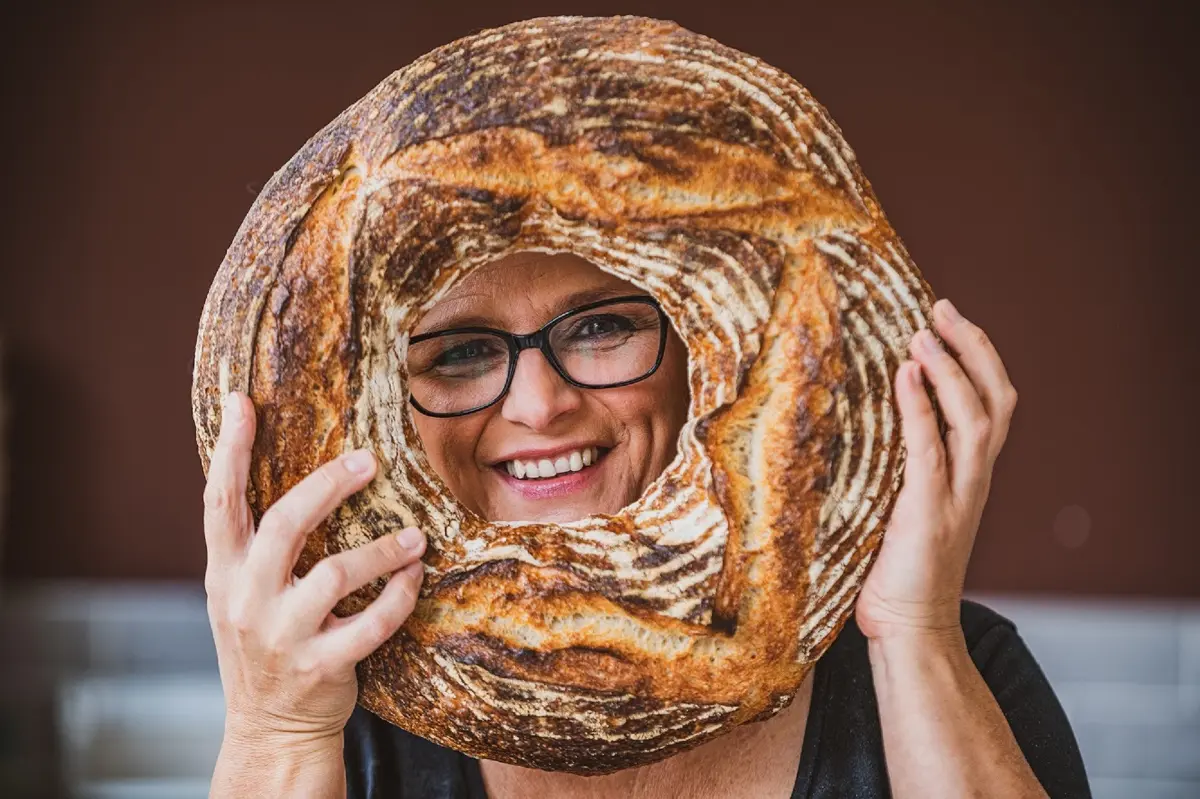
Sourdough or ‘wild’ sourdough?
Just to clarify something: sourdough is nothing but flour, water and salt. It is as simple as that. But no, it is still not: because this mixture is and will remain a bakeable sourdough, thanks to a combination of many factors and careful attention. It is a unique thing, no wonder that in the old days, mothers used to give their daughters some of their own sourdough to bake the family bread with. Artisan bakeries, on the other hand, are proud of their legendary sourdough, which can be generations or even hundreds of years old: it’s a living substance, containing unique bacteria that are specific to the place and even the hands of the bakers who work with it.
Quarantine and baking profession
Many thought that it would be the swan song of artisan bakeries and their associated café-breakfast places that many people took to baking bread during the confinement measures. The artisan bakers were sure that the enthusiasm would be intermittent, but it would be good for the profession and for customer awareness, as craft baking requires total dedication, not to mention a lot of time. Each process has its own sequence, which cannot be completely standardised: it depends on the flour, the temperature, and perhaps even the mood of the baker.
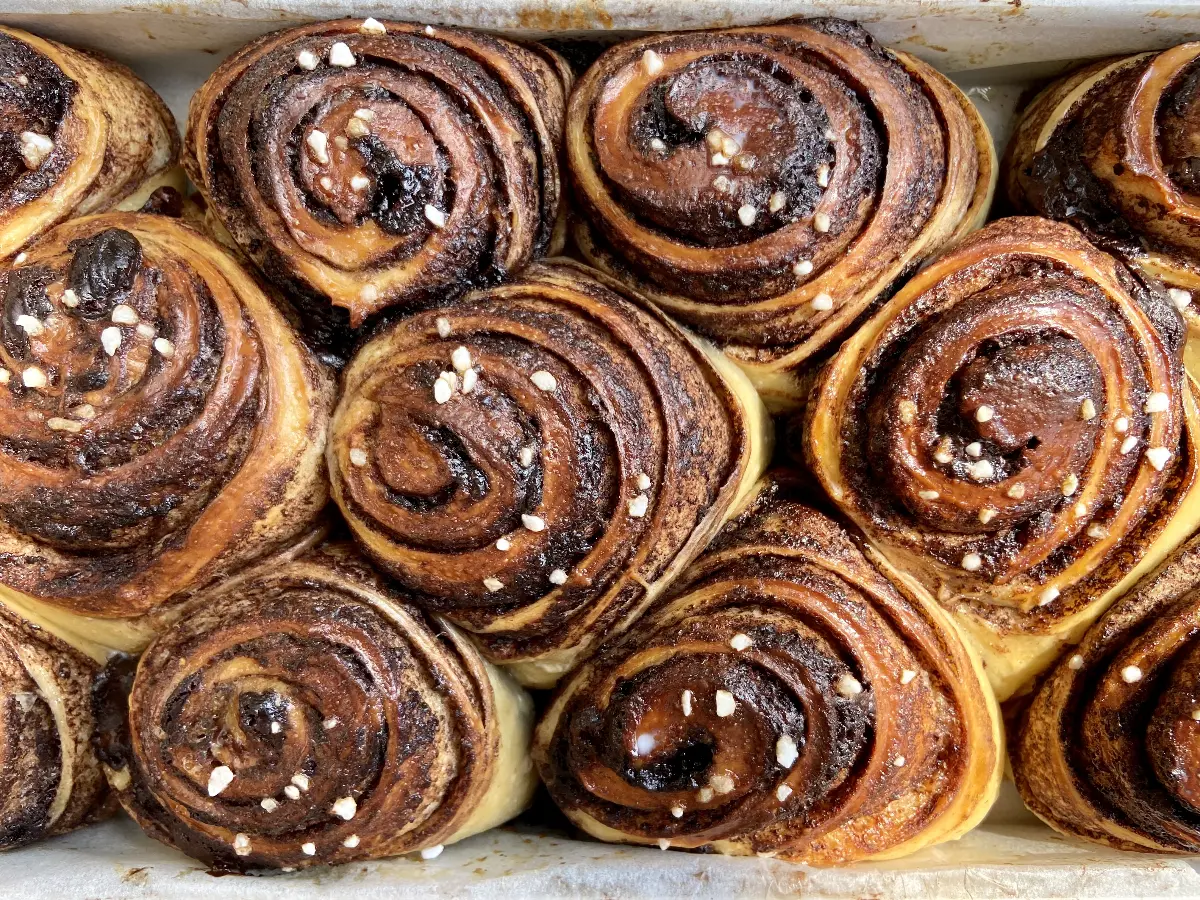
The baker’s house and the banks of the River Szamos
The Jenői Bakery was born in a tasteful farmhouse in Budajenő – this is where Gabriella lives. She later learned that the house had once belonged to a baker in Budajenő. Bought in 2005, almost in ruins, it was love at first sight for her. Her second home is in Satu Mare, on the banks of the River Szamos. In a place where once every village had a mill, where so much wheat was grown, and where the tradition of home-baking bread is still alive today. This house is also the result of an adventurous and unplanned visit, and looking at the end result, we can say: perhaps there are no coincidences. Following in Gabriella’s footsteps, several artisan bakeries started up in the countryside and in Budapest, and her work and passion contributed to the now common sight of artisan bakery-cafés and the sourdough revolution. Because these two mean the same thing to her.
